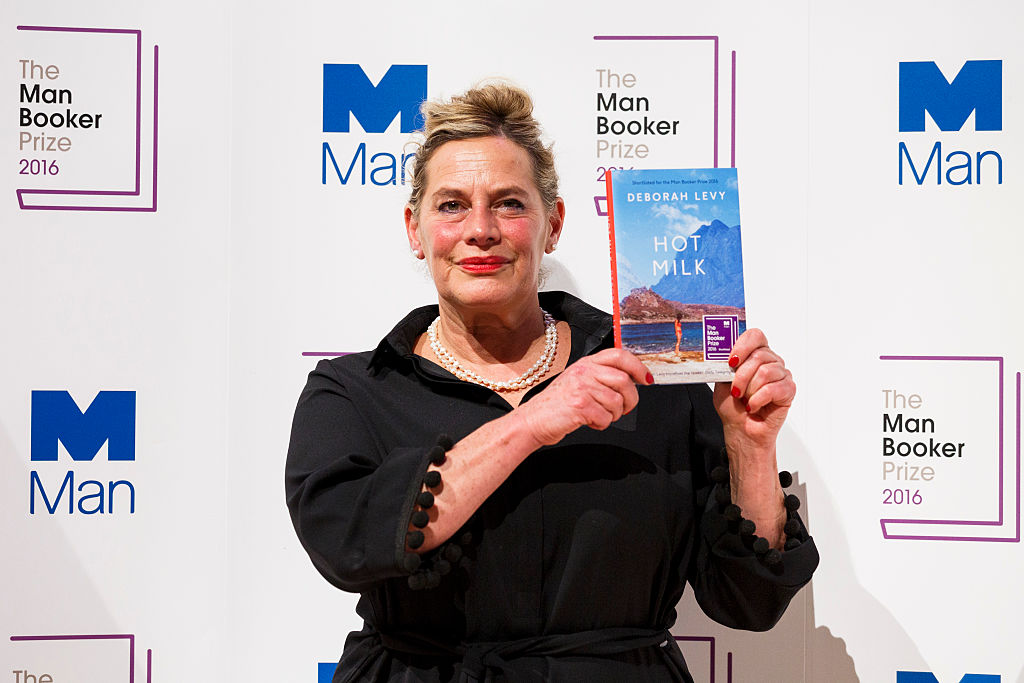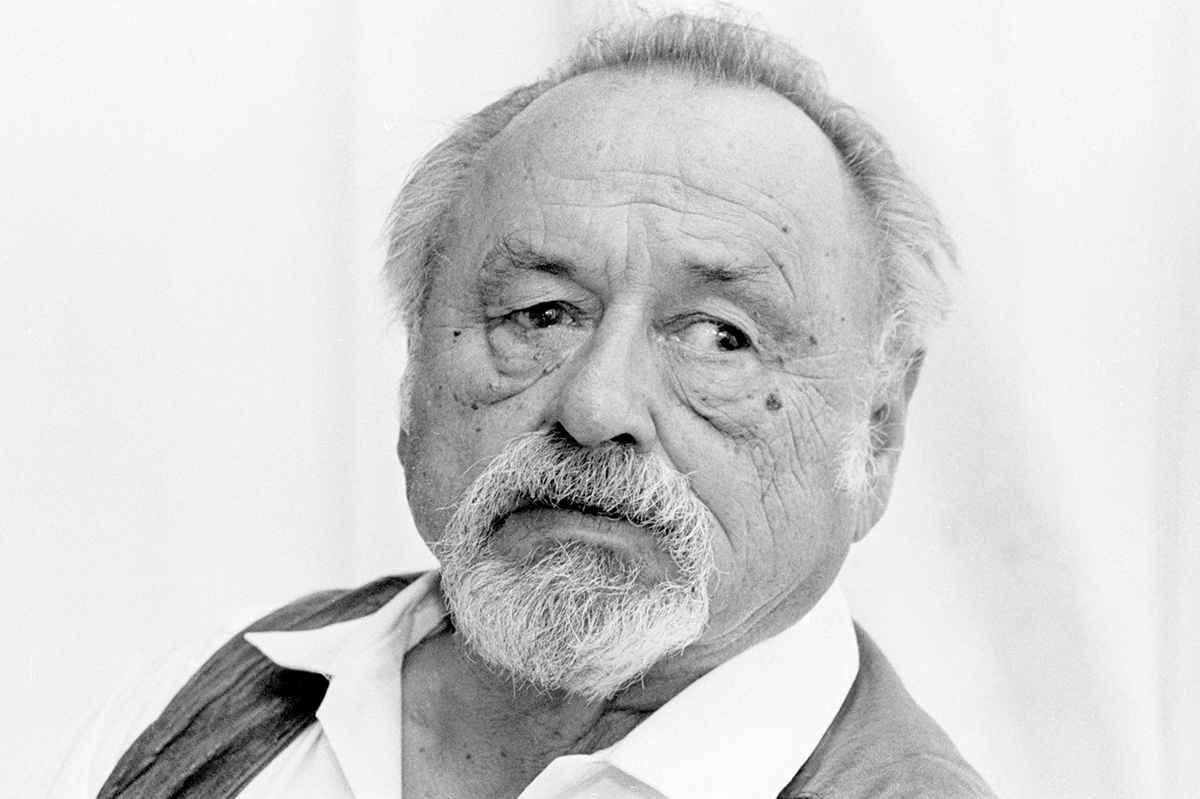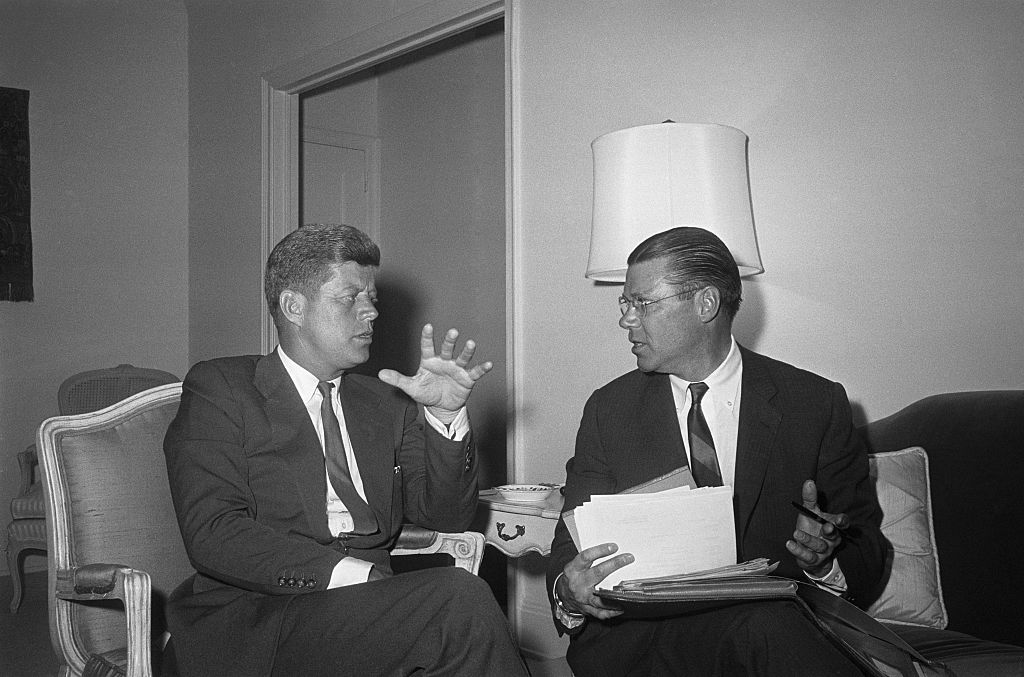“When you take a flower in your hand and really look at it, it’s your world for the moment. I want to give that world to someone else.” The final installment of Deborah Levy’s “Living” biographies, Real Estate, begins with this quote from the artist Georgia O’Keefe. It would be neat — oh, so neat! — for me to remark that if her memoirs were each a single flower — the world of the writer unfurling between its papery leaves — her latest book, The Position of Spoons, is a bouquet: a collection of variously published and unpublished letters, essays, short stories and poems spanning her entire life as a writer. But The Position of Spoons is not neat. Instead, reading it feels rather like rummaging through Levy’s desk. Interestingly, the French title — La position de la cuillère — leans into this kind of rumpled intimacy, translating as “spoon position,” but the more po-faced English version feels decidedly awkward about such a European entanglement.
Thrice Booker-longlisted, with legions of fans, Deborah Levy is a rare thing: both critically acclaimed and genuinely popular. Born in 1959 in South Africa, where her father was a political prisoner, Levy and her family moved to Britain during her teens. After leaving art school, she emerged as a playwright and a novelist with unusual courage and an unorthodox approach to narrative. Her work was respected, but its individualism held her back from achieving any major mainstream success until her fourth novel, Swimming Home, was published by an independent, subscriber-driven press and shortlisted for the 2012 Booker Prize.
Levy is now a major star in the literary firmament. Both Swimming Home and Hot Milk have been adapted for film, and the subsequent novels The Man Who Saw Everything and August Blue were well-received, but it is her “Living” biographies that have made her a household name. This trilogy of formally innovative memoirs, Things I Don’t Want to Know, The Cost of Living and Real Estate, chart her life from her difficult upbringing in South Africa to the collapse of her marriage and the transition from single mother to mother of adult children.
Levy’s growing success is down to her very particular style. In both her fiction and memoirs, her tone slides rhythmically from high to low. Freud and Agnès Varda share the page with a declaration of Levy’s love of good olive oil. Buying a pepper grinder flows into a rumination on male potency. It is nothing short of literary sleight of hand. Reality becomes absurd and words appear as slippery as the wet fish her protagonist Sofia smuggles into her pocket at a fish market in Hot Milk. Under Levy’s gaze, lemon juice is decreed “slightly neurotic” and sharp, surprising similes jolt you to sit up straight: “her small glossed lips are alive, like a water rat.” But most importantly, her writing is always full of love. Levy is kind to her younger self, especially generous towards young women and celebrates the everyday.
The Position of Spoons is full of trademark Deborah Levy flourishes. In a glowing essay, “My Beautiful Brothel Creepers,” Levy fondly remembers the favorite punky shoes of her teenage self and extols the select few who have the nerve to wear shoes without socks. “These sockless people have a kind of abandon in their body. They walk with zip. At the same time they manage to look both nonchalant and excitable. To not wear socks is to be alert but not hearty. To not wear socks is to not pretend that love is forever.” Levy’s assured voice is firm and beatific, and the gray world is warmed by the fierce heat of her attention.
At its best, Levy’s writing has an effortless power which shows something bewildering that was there all along. Her inimitable worldview can feel intoxicating and reading her writing becomes addictive. There are points when The Position of Spoons brings out this hypnotic quality, so that it works brilliantly as a cohesive collection.
Following the ode to the “godless” sockless, for example, is an abstract musing on a photograph by Francesca Woodman, then a more conventional piece of journalism about Levy’s love for Lee Miller, before a previously unpublished portrait of a bullied wife standing at the school gates. This is a clever piece of curation. Together, these short pieces really sing. Without Levy laboring the point, they remind you of the power of choosing to stop and look.
However, not all The Position of Spoons feels this artful. Levy’s novels are an intense depiction of consciousness, varying from the staccato diction of the anxious Sofia in Hot Milk to the more limpid confusion of Saul in The Man Who Saw Everything. Wordplay and repetition unify these fragmentary novels and thread them together across timelines and locations. Stepping through Levy’s oeuvre is like walking through a hall of mirrors. The result is not only technically impressive but creates an uncommon intimacy between reader and writer. Writers are often asked where they get their ideas from, so it feels special for one to go ahead and take you into their confidence. The collective noun for her works might be “a conspiracy of Levy.”
Still, in a collection like this, repetition can easily transform into recycling, and feel cheap in the process. There is an especially brilliant 2009 experimental work, “A to Z of the Death Drive.” As the title suggests, it is an alphabet of musings on death, celebrity and the automobile which leaps from references to Hitchcock to horoscopes and mixes quotes from Audre Lorde with classic Levy lines like, “God is a pair of (hidden) hands on the steering wheel, an ageless chauffeur driving us to an unknown destination. We will not know where the bathroom is when we arrive.” “T” is “Trauma”: Levy uses the conceit of the black box in an airplane to construct a metaphor about repressed memories. So far, so good. But when we get to another abecedarian exercise, “A Roaming Alphabet for the Inner Voice,” published in 2006, the format feels a little tired, especially when the image of recovering a black box is used in “M is for Marriage.”
In an anthology by any other author, such repetition might be carelessness. But with Levy, it can only be deliberate. Many essays focus on a particular artist, with Hope Mirrlees, Violette Leduc, Ann Quinn, J.G. Ballard and Marguerite Duras just a few in the constellation of Levy’s influences. Seeing them sprinkled through her writing inevitably raises questions about her own legacy. Without confronting it head on, there are some drive-by comments on how risk-averse the publishing industry is. She remarks that Duras’s The Lover would not be published in Britain today and acknowledges that the critical defense of Ann Quinn has stopped her from becoming a household name — “the word ‘experimental’ kept her nicely in her place.”
At times, The Position of Spoons feels like an attempt to remind Levy’s readers that she contains multitudes. We have not only Levy the charismatic life-writer or Levy the magician who can turn Russell Square Gardens into “a place where God can be glimpsed inside the body of a London pigeon,” but Levy the performance artist, the avant-garde playwright and the poet. After all, these are Levy’s literary origins, and she feels keen to remind the reader of that fact. Indeed, next to her more sober essays on artists or the beauty of the everyday, some of the more experimental interludes are remarkably odd. One follows Alice down the tunnels of Woolwich to meet the drunk white rabbit who is “extremely nervous about his gums deporting his teeth.” Another is a short conversation with a telephone pole. Dreamy and surreal, these more avant-garde passages vary from sublime to unsatisfying. And leaping from one chapter to the next can feel ungainly; at times, the anthology feels overstuffed. But it is nice to see Levy heeding her own advice: “It’s always a very good thing to put a few drawing pins under the self-righteous bullying butt of narrative — we have got to keep it alert and make it scream a little and make sure it does not settle into an armchair with a kitten on its lap.”
She might mean “the bullying butt of readers.” The compilation of The Position of Spoons was suggested by Levy’s French publisher to fill the demand for her work while she prepares her forthcoming biography of Gertrude Stein, Mama Dada, and its placeholder nature feels clear at times. At its weakest, as with some rather bland critical introductions included here, these essays are essentially elongated biographies full of lofty praise or half-hearted analysis, with Levy’s name sprinkling stardust. Paula Rego’s “sheer technical virtuosity” is applauded, and Elizabeth Hardwick is decreed “one of the world’s most valuable essayists.” This may be so, but it’s definitely not Levy at her most interesting. As she herself wrote in Real Estate, “the point of thinking is that it will always muddy the water. So how do we live with our free thoughts and the mud?”
These weaker chapters might disappoint Levy’s regular readers. But they show us, perhaps inadvertently, the economic reality of being an author in 2024. Yes, Levy is a beloved life-writer, surreal literary artist and a cerebral critic — but she is also a wife and mother with bills to pay. The Position of Spoons may be best understood as an extension of her memoir. All three of the books in the “Living” trilogy acknowledge the precarity of her occupation, most notably The Cost of Living, at its most basic an account of days spent trudging across London on her electric bicycle between Levy’s writing shed, the supermarket and her freezing apartment. In that book, we only heard of how she would write through the night wired on Turkish coffee; here, we see the fruits of that labor.
What The Position of Spoons achieves is not a portrait of Levy at her greatest, but a sketch of the author in motion: a living, breathing writer with her shoulder to the wheel. If you don’t like her cutting corners or dashing out the odd flabby introduction, ask yourself how else could she afford to keep leaping from one Booker-nominee to the next? This anthology might not be perfect, but it is a testament to an enduring writer who is only going to keep getting better.
This article was originally published in The Spectator’s November 2024 World edition.






















Leave a Reply